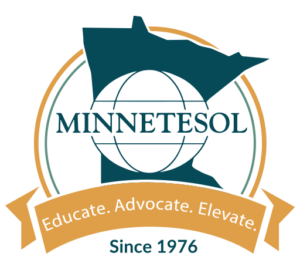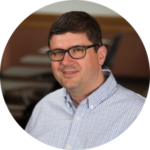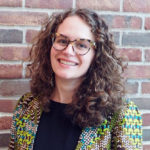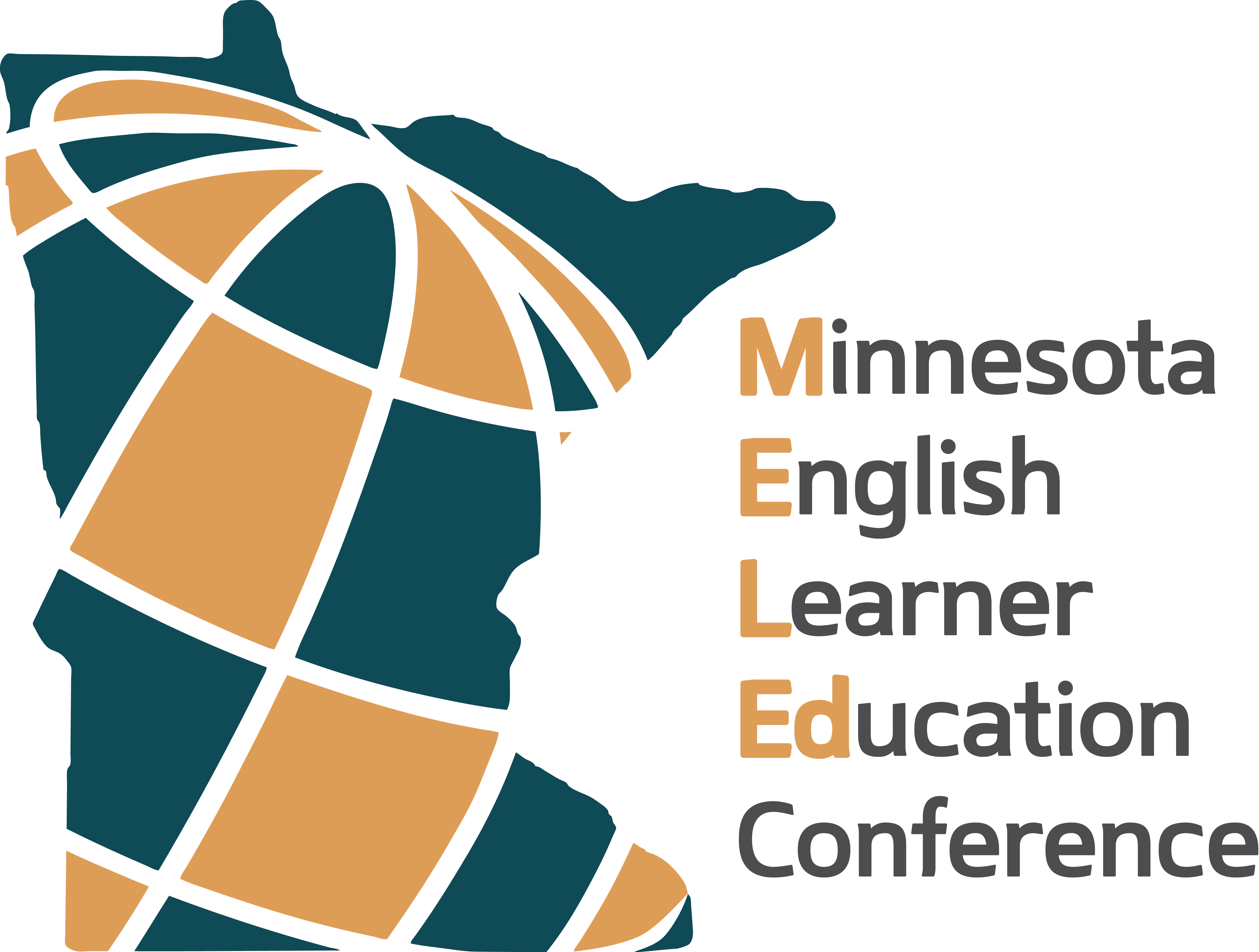Letter from the President
Salam – Greetings of peace – to you all,
I would like to take this opportunity to share some topics that have been on my heart and mind these recent months.
I have been spending a lot of time reflecting on the tension and anxieties I have felt from some ML educators around the recent READ Act legislation. The READ Act, passed by MN legislators last spring, is focused on how to increase the reading proficiency of children in Minnesota. As a teacher of the English language, I appreciated that the current legislation acknowledges the fact that reading is a domain of language and calls out the need for Minnesota ESL teachers to also receive training on the science of reading (SOR). If you haven’t had a chance to read the legislation yourself, MDE has a website with many resources.
I’ve also had the opportunity to complete one of the three approved trainings. What I found was that the professional learning, although applicable to MLs learning to read, was lacking a certain je ne sais quoi. What I discovered after spending time looking for answers was that, while the body of research that makes up the science of reading applies to ML students, the professional learning did not adequately address the needs of ML students well in their asynchronous portions (especially for ML students who are not Spanish speakers). However, I did find the synchronous sessions to be slightly better at scratching the surface of ML needs in learning to read. Many of my notes on the virtual sessions included quotes from facilitators acknowledging that language is foundational to reading. Some of my takeaways included:
- “…we cannot understand by reading anything that we cannot understand by listening”
- “Literacy depends upon language…language that you can’t understand by listening is also language you can’t understand by reading”
- “We are a speech-to-print system”
I took these pieces and began my journey to understand what it is that ML students need in addition to what their mono-lingual peers need for instruction in reading. In that process, I’ve found several researchers and resources, which I have collected here, to be helpful. I hope others find it beneficial as well.
In close, I hope this newsletter finds you in good health and safety for these are challenging times, indeed. Threat of strikes across the state, violence towards BIPOC and LGTPQ+ communities, and global conflicts, all create worry and weight on the hearts and minds of many of us and our families. Personally, I have found these times to be very painful as I (and the world) watch the suffering and heartache of fellow community members, and although not the purpose of this letter, it must be acknowledged at a minimum.
“We can disagree and still love each other unless your disagreement is rooted in my oppression and denial of my humanity and right to exist.” – James Baldwin
With deepest gratitude to every student advocate,
Qurina Slayhi
Upcoming Conferences
MinneSLIFE Spring Fling
The MinneSLIFE Spring Fling will happen on Sat., Apr. 27, from 9:00 am – 4:00 pm in Folwell Hall at the University of Minnesota. It will feature a series of speakers both local & national. The conference is fully hybrid: attendance & presentations will be from both in-person & virtual participants. The conference is free for all participants, and lunch from Afro deli is included for in-person participants. We will include registration information when it is available.
2024 MELEd Conference – Save the Date!
The Minnesota English Learner Education (MELEd) Conference will be held
November 21-23, 2024 at the Saint Paul Rivercentre MELEd is a partnership between MinneTESOL and the Minnesota Department of Education. It is a merger of the annual MinneTESOL Fall Conference and the Minnesota ESL, Bilingual, and Migrant Education Conference. The Call for Proposals will be available mid-April. More information to come!
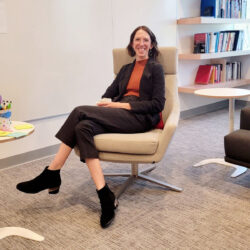 Getting to know MinneTESOL
Getting to know MinneTESOL
Name: Merissa Russie
Position at MinneTESOL: Advocacy Chair
Education context: Hiawatha Academies, K-12 Charter in South Minneapolis
Why you got into ESL: I believe that all students can achieve their goals, and our role in education is to remove as many barriers in the way as we can. As a language educator, I enjoy playing a part in that for multilingual learners and their families.
Current project: As we start the new legislative session, there is a lot of excitement about what could come for education. Specifically for MLLs, there is introduced legislation on topics like increased funding for English Learner education, strengthening relationships between parents/families of MLLs and the school, and additional professional learning for teachers and administrators of ELD programs. I’ve been working on gathering advocacy resources so we can use our collective voice to better education for MLLs across our state.
MinneTESOL journal featured article
Sara Goldberg and Gordon Blaine West describe their research on students involved in an afterschool program, Global StoryBridges, in their article “Building a Sense of Community Through Equity-driven Afterschool Programming.” They explore the importance of creating a community that supports students’ social and emotional well-being, as well as the need for equity-driven afterschool programming for multilingual learners.
MinneTESOL Journal call for papers
Now is your chance to publish an article in the upcoming MinneTESOL Journal, a practitioner academic online journal. See Writing for the MinneTESOL Journal for more information.
Journal submissions are accepted on a rolling basis.
Email the senior editors to learn more about submitting work: [email protected]
Statewide Survey on Supports for Multilingual Learners:
If you work in Minnesota schools in any capacity, we encourage you to take the following 10-15 minute survey to provide input on statewide efforts to improve instruction for multilingual learners. This survey is a collaborative effort between Project MOMENTUM, the Southeast Service Cooperative, MinneTESOL, Minnesota Education Equity Partnership (MNEEP), and the Multilingual Department of the University of Minnesota – Twin Cities. Share with your colleagues and friends to help inform more equitable opportunities for multilingual learners. As a bonus, everyone who completes the survey will be entered into a drawing to win one of five $50 gift cards! Link to Survey: https://us1se.voxco.com/SE/1145/Momentum/. Please complete by March 8.
Did you know?
Past MinneTESOL newsletters can be found on our website, at http://minnetesol.org/minnetesol-newsletters
We want to hear from you
We are always looking for information to share from our members. Please send newsletter submissions to [email protected].
